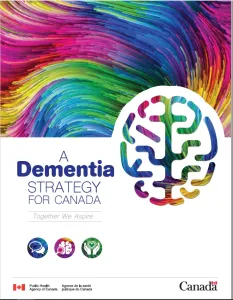Centred Content
Reena applauds the inclusion of the intellectually disabled in the national Dementia Strategy.
The Strategy
 Earlier this week, the Honourable Ginette Petitpas Taylor, Minister of Health announced the release of A Dementia Strategy for Canada: Together We Aspire. This first national Dementia Strategy focuses on preventing dementia, advancing therapies, and finding a cure, as well as improving the quality of life of people living with dementia and caregivers. Budget proposed for 2019 is $50 million to help advance the Strategy.
Earlier this week, the Honourable Ginette Petitpas Taylor, Minister of Health announced the release of A Dementia Strategy for Canada: Together We Aspire. This first national Dementia Strategy focuses on preventing dementia, advancing therapies, and finding a cure, as well as improving the quality of life of people living with dementia and caregivers. Budget proposed for 2019 is $50 million to help advance the Strategy.
Congratulations
Reena Group of Charities would like to thank the Honourable Ginette Petitpas Taylor, Minister of Health, (@CDNMinHealth) and Honourable Filomena Tassi (@MinofSeniors) Minister of Seniors and the Government of Canada for their contributions launching Canada’s first national Dementia Strategy.
We have been looking forward to a Canadian Dementia Strategy for some time and are so pleased that the time has come for Canada to develop a plan for this most important issue. When we heard the announcement that this work was beginning, we became immediately engaged in the process to inform the strategy.
Reena and Dementia Research
For the last twenty years Reena has been an industry leader, creating the Ontario Partnership on Aging and Developmental Disabilities. This partnership promotes collaboration across sectors through education and sharing information – encouraging unique models of support and care. A key area of this work has been on dementia and developmental disabilities.
Recently, Reena has worked with experts, Dr. Nancy Jokinen, Associate Professor, UNBC and Leslie Udell from Winnipeg (Winnserve) to create the Canadian Consortium on Dementia and Developmental Disability. One of the key actions of this group is to work with our U.S. partners, National Task Group on Dementia and Developmental Disabilities. They created a curriculum and our goal is to create a Canadian version, and deliver this across Canada. This year we piloted 3 sessions across Canada – Thornhill, Winnipeg and Victoria.
As a result of these three sessions we now have a group of connected leaders, providing a growing network of support and learning.
Reena’s Contributions
Sandy Stemp from Reena and Dr. Nancy Jokinen took part in the National Dementia conference in 2018 and were able to help provide information to the participants and members of the Ministerial Advisory Board on Dementia on the unique issues and needs of those with dementia and developmental disabilities. After the conference both were approached by the Canadian Academy of Health Sciences indicating they did not have knowledge on dementia and developmental disabilities.
We provided a document with research citations and then Dr. Nancy Jokinen was commissioned to provide a report, Improving the Quality of Life and Care of Persons Living with Dementia and Their Caregivers, (see Appendix G of this report link –https://www.cahs-acss.ca/improving-the-quality-of-life-and-care-of-persons-living-with-dementia-and-their-caregivers).
We believe that these actions and the advocacy of all those connected to the Canadian Consortium on Dementia and Developmental Disabilities provided the impetus to the inclusion of those with developmental disabilities in Canada’s National Dementia Strategy.
Dementia – Background Information
More than 419,000 Canadians aged 65 years and older diagnosed with dementia in Canada. As population ages, more and more Canadians are affected, and two-thirds of those diagnosed are women. Dementia affects not only the person living with dementia, but also their families, caregivers, and communities.
The new strategy places emphasis on those groups who are at a higher risk of dementia as well as those who face barriers to equitable care. These groups include but are not limited to Indigenous peoples, individuals with intellectual disabilities, individuals with existing health issues such as hypertension and type 2 diabetes, older adults, women, ethnic and cultural minority communities, LGBTQ2 individuals, official language minority communities, rural and remote communities, and those with young onset dementia.
Want to learn more about how this new strategy will affect people with dementia?
Want to have access to Reena’s 20-year professional research and help your community?
Learn more about Reena’s partnership with the NTG Canadian Consortium on the Dementia Strategy Project here.
